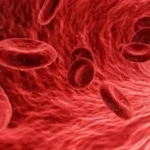The thyroid is a butterfly-shaped gland and is located in your neck (throat) and produces a thyroid hormone.
Around 42 million people in India have thyroid disorders and most of them people even do not know they have thyroid issues.
The thyroid gland is made up of many cells called follicular cells, and it is an endocrine gland means – it produces hormones that include:
- T3 hormones – Triiodothyronine
- T4 hormones – Thyroxine
This thyroid hormone regulates the metabolism of every single cell in the body, and women are more likely to have thyroid issues than men.
There are two main types of thyroid issues are – “Hyperthyroidism and Hypothyroidism”, but today we talking about hyperthyroidism.
What Is Hyperthyroidism Disorder?
Contents
Hyperthyroidism is also known as overactive thyroid where the thyroid makes a high level of T3, T4, or both, this condition can make your metabolism speed up.
The thyroid hormones (T3 and T4) regulate function such as:
- Oxygen use
- Heat production
- Basal and cellular metabolism
- Growth and development of the skeletal nervous system
When the thyroid hormone level increases in the bloodstream, so metabolic rate also increases.
Reasons of Hyperthyroidism
Hyperthyroidism disorder is caused by several reasons including:
Graves disease: It is a type of autoimmune disease, In this, the immune system attacks its own thyroid, which causes the thyroid to make too much thyroid hormone.
It is a hereditary condition (can pass through a family) and occurs more often in women than in men, And it is the most common cause of hyperthyroidism.
Excess iodine: Iodine is a mineral that your thyroid uses to create thyroid hormones, and you are more prone to hyperthyroidism.
Consuming too much iodine (through your diet or medications) can cause your thyroid to produce more thyroid hormone.
Thyroiditis: In this condition, there is inflammation of the thyroid. It can happen within a year of delivering a baby.
After you experience thyroiditis, your thyroid may be unable to recover, which would lead to hypothyroidism (2).
Infection: If infection occurs in the thyroid gland, then the thyroid gland does the abnormal secretion of thyroid hormone, which causes hyperthyroidism.
Stress: It slows your body’s metabolism, stress, and emotional shock are linked to each other, which both trigger the pituitary gland (work for TSh release) (3).
Other reasons such as:
- Tumors of the ovaries or testes
- A large amount of tetraiodothyronine is consumed whether it is through medicine or food
Symptoms of Hyperthyroidism
Hyperthyroidism often causes a variety of non-specific symptoms including;
- Nervousness, due to the stimulation of the pituitary gland
- Irritability
- Anxiety
- Bulging eyes
- Feel hot
- Weight gain or loss
- Fracture may be present
- Increase heart rate
- More chance of heart failure
- Increased pulse rate
- Vision change
- Diarrhea
- Women can see changes in menstrual
- Problem with sleeping
- Swelling of the neck area
- Muscle weakness
- Hair loss
Such symptoms may be managed with drugs only for a certain period of time such as beta-blockers.
In some symptoms, patients who require immediate doctor are:
- Difficulty in breathing
- Fast, and irregular heartbeat
- Dizziness
- Fainting
During pregnancy
Hyperthyroidism can affect many women during pregnancy.
During pregnancy, thyroid hormones should be at a normal level, and it will cause trouble in both less and more.
The thyroid’s normal function is necessary for an unborn baby’s mental health, as well as baby totally depends on you for the thyroid hormone.
If you are not willing to take or you miss your medicines, the intellectual level of the baby or the sensory development of the baby can be affected.
This result can be seen throughout life, the brain part can be slow and the baby will not be able to appear mentally healthy like other babies.
However, some experts believe that severe nausea and vomiting are caused by high levels of hCG early during pregnancy.
High HCG levels can cause the thyroid to make too much thyroid hormone.
Learn More – Obesity, And Pregnancy, Is Any Relation B/W Them, Risk
Who is At High Risk of Hyperthyroidism?
There are some people who are more prone to the risk of developing hyperthyroidism including:
- Pregnant ladies
- Family history of thyroid disease
- Medical condition
- Aged people, especially those above 60
- Being female (4)
- A person who has an autoimmune disorder (5)
- Consuming plenty of iodine
An increased risk of all-cause mortality was reported in patients with hyperthyroidism, with heart failure being the main cause of cardiovascular events (6).
How Doctor diagnose Hyperthyroidism?
When the TSH level is less than 0.4, this is when you are dealing with hyperthyroidism.
To diagnose hyperthyroidism doctors perform a physical exam, and it has some basic techniques such as:
- Inspection
- Percussion
- Palpation
- Auscultation
When the thyroid gland is larger, which causes soft thyroid and pulsation to be present in it, the doctor may perform palpation.
Other physical examinations such as:
- Eyes: Your provider may check your eyes for swelling, redness, blurred vision, and any other eye issues.
- Your thyroid: In this, they check for any enlargement shape, bumpy or tender.
- Heart: Check any irregular heartbeat or fast heartbeat.
- Hand: Your doctor may perform this test to see changes in your fingernails.
- Skin: In this, skin looks warm and moist and increases temperature.
Other tests or examinations are included such as:
- Thyroid scan: TSH, T3, T4, and thyroid antibody blood tests
- Imagine test: This includes – ultrasound, CT, and radioactive iodine test, (measure how much radioactive iodine in your thyroid takes up from your blood).
- Blood tests: In this doctor checks T3, T4 and TSh levels.
- Cholesterol test: If your cholesterol level is very low, it means your metabolic rate has increased, which means excessive production of T3 and T4.
Treatments of hyperthyroidism
The chosen first-line treatment will depend on the person and on the country where being treated.
Medical ways
Surgery: To remove the thyroid can sometimes be performed as a transoral thyroidectomy, a minimally invasive procedure (7).
However, surgery can increase the risk of damage to the parathyroid glands and the recurrent laryngeal nerve.
If pregnant women have excessive thyroid hormone release or have hyperthyroidism present, then the doctor may perform the surgical correction.
Medication: long-term management of hyperthyroidism may suppress thyroid function medicine such as:
- Propylthiouracil
- Carbimazole
- Methimazole.
Pharmacological therapy: In this, doctors give anti-thyroid agents.
Radioactive iodine: It is an effective treatment for hyperthyroidism, this includes consuming radioactive iodine in a capsule or liquid.
This slowly destroys the cells of the thyroid gland.
Almost everyone who has radioactive iodine treatment later develops hypothyroidism because the thyroid hormone-producing cells have been destroyed.
Hypothyroidism is easier to treat in comparison to hyperthyroidism but also has some side effects such as – dry mouth, eyes, sore throat, etc
Home-Remedy
A healthy lifestyle is one of the best home remedies for its management such as:
- Take proper calcium and vitamin D, which also reduce the risk of osteoporosis.
- Avoid too much iodine food, iodine-rich foods such as fish, consumed in limited amounts.
- Do daily exercises, or walking, especially after eating
- Yoga
- Avoid smoking and secondhand smoking
Complications of Hyperthyroidism
Complications can increase if a person leaves it untreated, and it can make your symptoms worse.
A thyroid storm is a life-threatening issue, if you see any symptoms, talk to your doctor immediately symptoms are:
- High fever
- Fast heartbeat
- Delirium leads to confused thinking and reduced awareness of the environment
- Heart failure
- Loss of consciousness
A serious complication allied with hyperthyroidism is severe muscle weakness.
In addition, Asian patients are more prone to an overactive thyroid.
Some other complications include:
- Osteoporosis (8)
- Abnormalities in the reproductive system, such as large breast tissue in men (9) and decreased fertility and menstrual irregularities in women (10)
BOTTOM LINE
The thyroid hormone regulates the metabolism of every single cell in the body, and women are more likely to have thyroid issues than men.
Consuming too much iodine can cause your thyroid to produce more thyroid hormone, so avoid too much consumption.
Adopting a healthy lifestyle can go a long way in reducing the symptoms of Hyperthyroidism.



